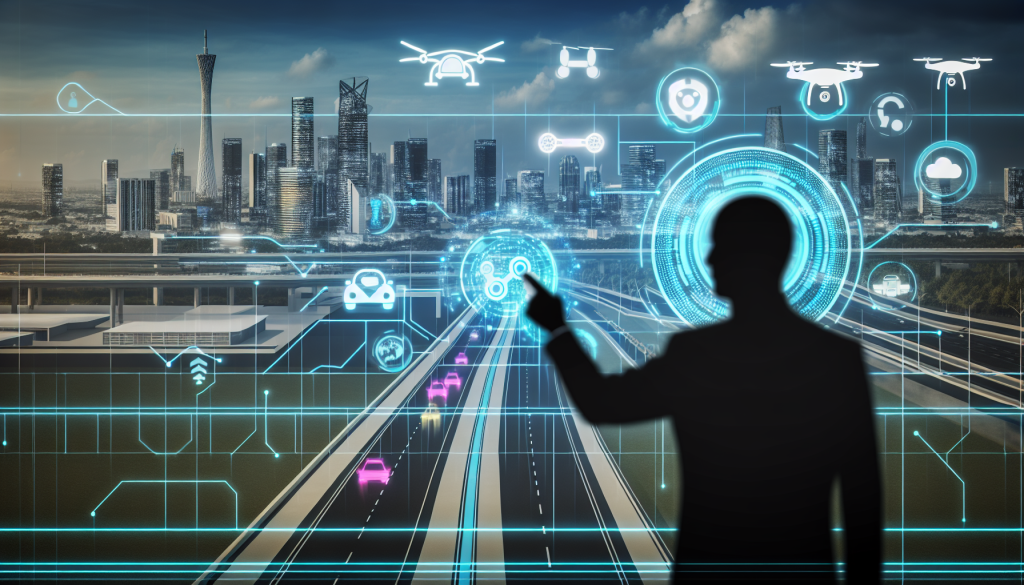The Future of Technology Under a Trump Administration: A Glimpse into AI, Misinformation, and Deregulation
Elon Musk’s surprise appearance at Donald Trump’s campaign rally on October 5 marks a significant moment as the tech mogul prepares to take the reins on various tech-related policies in Trump’s newly won presidential term. As the 47th president of the United States, Trump’s approach to technology is set to reshape the landscape significantly, especially concerning critical issues like artificial intelligence (AI), drone warfare, and misinformation.
The Call for AI Regulation
With Trump’s anticipated return to the Oval Office, the question of AI regulation looms large. His campaign promises to repeal the current administration’s Executive Order on AI reflect a broader anti-regulatory stance. Analysts worry that even though the government will continue its oversight roles, Trump’s alignment with Silicon Valley—particularly figures like Peter Thiel and Marc Andreessen—could push significant policy changes to favor rapid AI advancements.
While the public shows considerable concern over AI risks, Trump’s administration is likely to overlook these sentiments in favor of promoting an unregulated AI environment. “Trump has effectively tied his own hands,” notes Nate Sharadin, a research fellow at the Center for AI Safety, emphasizing that the new Supreme Court dynamics could stymie effective regulation even further.
The Military AI Landscape
Trump’s administration is expected to usher in a period of uncertainty regarding military AI governance. While the Biden administration aimed for responsible AI integration in defense ecosystems, the second Trump administration may pivot toward a more deregulated approach. This shift could lead to a free-for-all atmosphere, particularly as the U.S. engages in competition with global powerhouses like China and Russia.
Ian Reynolds, a pre-doctoral fellow at Stanford’s Center for International Security and Cooperation, anticipates that “prospects for international cooperation on defense-related AI governance are likely diminished.” This could inhibit the U.S.’s ability to develop a sustainable and responsible military AI framework, raising alarms about the usage of uncontrolled AI in warfare.
Misinformation and Social Media Dynamics
Given Trump’s history with social media, another area likely to experience upheaval is information management. Trump’s reputation for engaging in disinformation campaigns indicates that the administration might adopt a hands-off approach toward social media platforms. While X (formerly Twitter) is expected to remain a hub for conspiracy theories, other platforms may still uphold stricter content moderation policies, thereby balancing business interests against harmful content.
Sean Norton, a postdoctoral fellow at Princeton, asserts that “given the Trump campaign’s animus towards social media platforms” any reforms addressing harmful content will likely be parked for at least four years, with potential battles over Section 230, which shields platforms from liability for user-generated content.
Deregulation: Innovation or Overreach?
Trump’s deregulatory agenda promises a wave of potential changes aimed at catalyzing rapid technological innovation. This could encompass easing restrictions on cryptocurrency and pursuing a significantly less stringent stance on antitrust laws, favoring big tech companies like Google and Apple.
While proponents believe such moves will spur U.S. innovation, skeptics worry that the unchecked power of these tech giants could hinder market competition. Yusuf Can, a coordinator at the Wilson Center, warns that “placing so much trust in corporate interests to act in the public’s best interest is fraught with risk,” especially in an environment that historically prioritizes shareholder profit over consumer welfare.
Navigating Trade and Tariff Policies
Trump’s robust trade stance is expected to continue, positioning hefty tariffs on Chinese tech imports to foster domestic manufacturing. However, these tariffs may not come without a cost. The potential for increased consumer prices looms large, impacting economic inequality across the board.
AI Governance and Safety Concerns
Governance concerning AI technologies is becoming a crucial focal point as the Trump administration prepares to prioritize military and corporate interests in AI advancements over public concerns about safety. The competing needs for military competitiveness and societal well-being will clash significantly in policy discussions.
Owen Daniels from the Georgetown Center for Security and Emerging Technology points out that while Trump may rescind Biden-era executive orders on AI, it’s essential to monitor ongoing agency efforts. Promoting voluntary standards among companies might be more influential in shaping AI safety policies than any federal mandates.
The Drones of Tomorrow
As technological innovation continues to shape the defense ecosystem, military drones are set to take on an unprecedented role under Trump’s leadership. Dominika Kunertova, a research scientist, anticipates that the administration will show keen interest in expanding drone capabilities across varying domains, potentially leading to algorithm-driven military interventions.
A Light Touch on Regulations
Finally, Sarah Kreps from Cornell University observes that Trump’s administration will likely favor fewer regulations concerning the tech industry. The support he receives from tech accelerationists, and his interactions with figures like Musk, indicate a clear preference for an environment where innovation thrives without many oversight constraints.
With the stage set for a second Trump administration, the future of technology policy in the U.S. appears poised for rapid changes that could sit precariously on the edge of innovation and responsibility. Each of these focused areas—AI regulation, misinformation management, military advancements, and deregulation—will demand careful navigation to balance technological prowess against public safety and ethical considerations.

